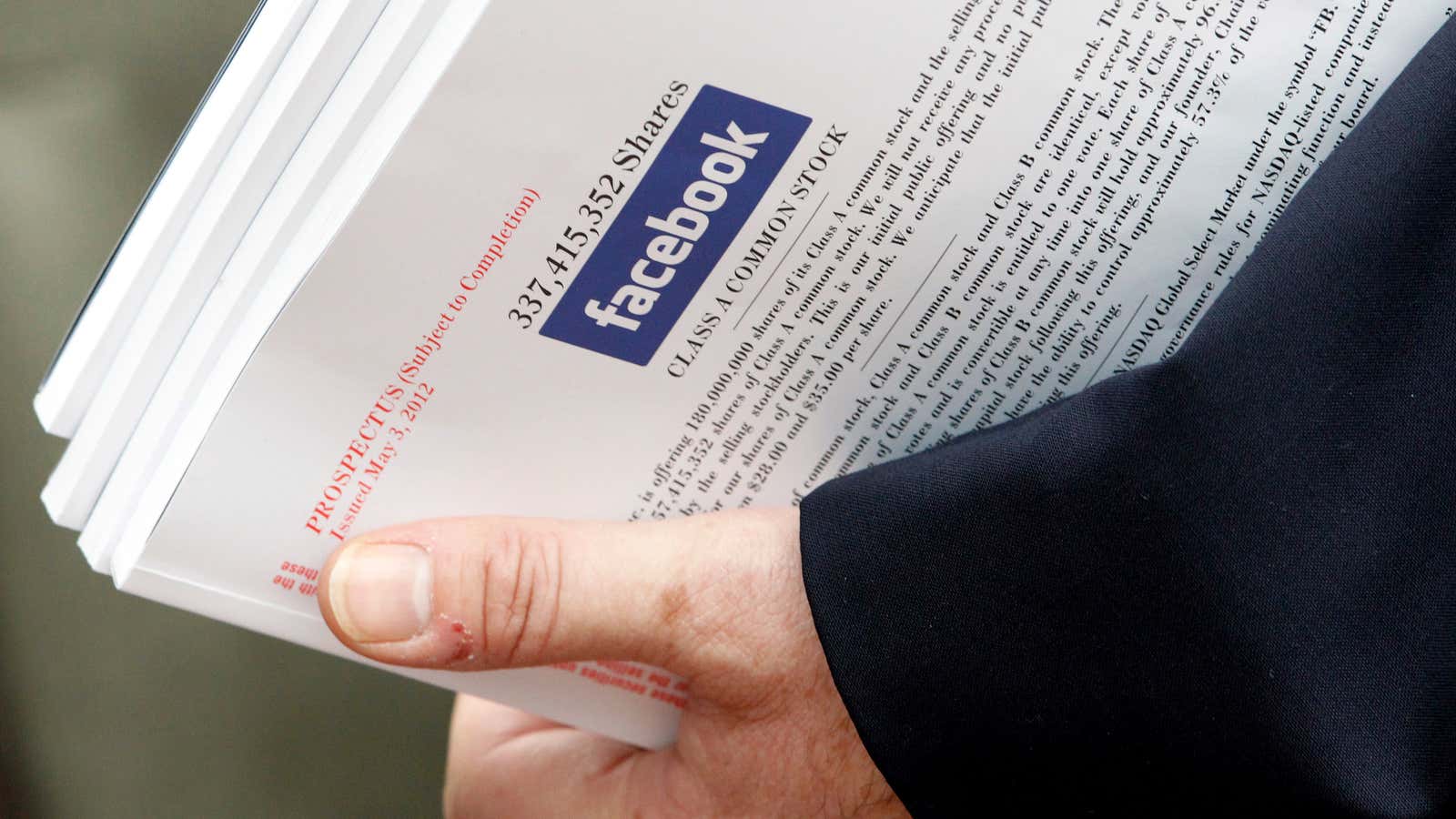When Mark Zuckerberg pays astronomical prices for unprofitable start-ups like Oculus ($2 billion) and WhatsApp ($19 billion), the Facebook CEO and founder is paying with a special currency, all his own: Facebook stock.
Many mergers and acquisitions are funded with company stock, of course, and in many cases the acquiree might prefer it: Stock gives them access to the potential upside of the merger in a way that cash can’t. But Zuckerberg’s deployment of company stock is special because of the corporate governance structure that Facebook and other tech companies have adopted.
These “dual class” structures allow founders to maintain control of their companies even if they don’t technically own a majority of its stock. As of February, Zuckerberg owned about 20% of the company, but almost all of that is “class B” stock, which gets ten votes for every one vote given to regular old class A shares; so he still controls the company personally, despite a minority economic interest.
That’s one reason Facebook acquisitions tend to come fast and furious: There’s no real need for Zuckerberg to chat with the board when he wants to issue 23 million new shares of Facebook stock, as in the Oculus acquisition.
Investors are rarely keen on the dilution of equity with the creation of new shares, and typically they find ways to protest: Just look at fund manager David Winters urging Coca-Cola shareholders to reject a plan to pay executives in stock, because he thinks it is over-generous. But, because of Facebook’s governing structure, there’s no way for shareholders to check Zuckerberg’s antics, even symbolically.
Except, of course, by selling the stock. And enough of them have chosen to do so that the stock has fallen about 7.5% since the Oculus acquisition was announced. That makes a dent in Zuckerberg’s net worth, but probably not one he really notices.
Facebook is still trading at more than 90 times earnings, which means that Zuckerberg has rope left when it comes to paying people off with shares, as long as the company remains profitable and there’s enough cash on hand to round out the deal-making. Oculus required $300 million in cash out of the $2 billion total price; WhatsApp required $4 billion in cash out of the $19 billion total.
And Facebook isn’t the only Silicon Valley acquisition hound with this structure: Google’s Larry Page and Sergei Brin use it to their advantage, as do founders at LinkedIn. Their ability to be free-spending with shares has helped drive up acquisition values and give rise to fears of a tech bubble.
But those aren’t necessarily prices an investor would pay after assessing a company’s fundamentals: An Oculus IPO likely wouldn’t value the company at $2 billion. These are prices that a few big tech companies can afford, thanks in part to their ability to pay with stock and the value they see in denying an advantage to their competitors.
